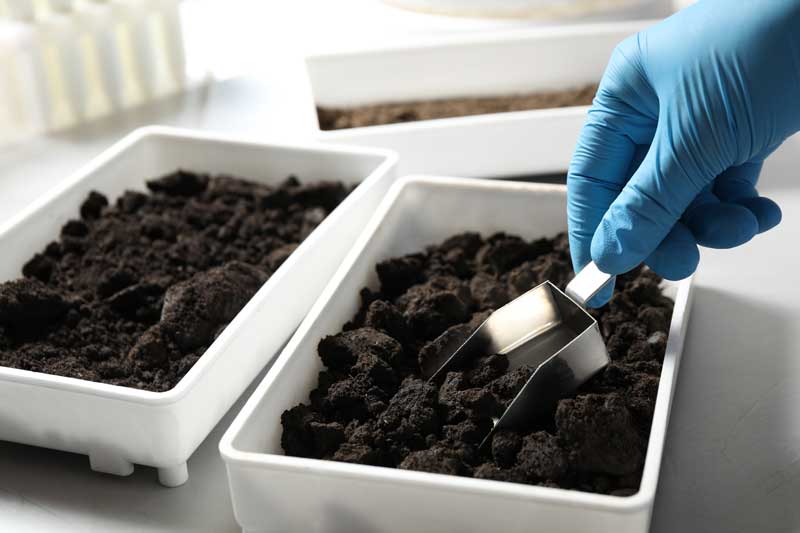to be in the mood to hum

What Is Fulvic Acid? Overview, History, and Uses
You may have heard around the health industry about an enigmatic health supplement that has been taking the industry by storm. From A list celebrities putting some drops in their water every day to social media stars, fulvic acid has captured the minds of more and more people like yourself.
Fulvic acid supplements, including products like shilajit, are popular for a multitude of reasons, many of which revolve around improving our health and brain function.
This article will touch upon everything that you need to know about fulvic acid.

Fulvic Acid – What is it?
What Is Fulvic Acid? Fulvic acid is a natural organic compound found in soil, plants, and water. It has been used for centuries as a traditional remedy for various ailments around the globe. It is considered a humic substance, which means that it is found to occur naturally within our environment in places like soils, peat bogs, and marine sedimentation.
In recent years, it has gained popularity among health-conscious consumers due to its potential health benefits. Fulvic acid is known to be rich in minerals and vitamins, which can help improve overall health and wellbeing. It also contains antioxidants that can help protect the body from free radical damage.
Fulvic acid is created by microorganisms that break down organic matter over long periods of time in the soil. It is a complex mixture of organic amino acids, fatty acids, trace elements, trace minerals, and other compounds like electrolytes. Fulvic acid also contains antioxidants that can help protect the body from free radical damage. In the absence of biological reactions, it can also be create through geological processes such as pressure and heat.
Definition of Fulvic Acid
Fulvic Acid is defined as: a highly soluble organic polyphenolic acid found in humus that chelates elemental mineral nutrients.
What is Fulvic Acid Used For?
Centuries of anecdotal evidence along with an ever-growing volume of modern studies have given us a great idea on the health benefits of fulvic acid.
Elizabeth Bradley, MD, the Functional Medicine Medical Director at the Cleveland Clinic, has said that the signs look promising for those people who are living with diabetes, Alzheimer’s, and other inflammatory problems. Dr. Bradley also cautions that there has not been sufficient human clinical studies to fully determine its use as a supplement.
What is fulvic acid’s benefits that have been reported by those who use it, and what does science say fulvic acid may do? Here is a list of what we found:
Where Does Fulvic Acid Come From?

There are different types of sources for fulvic acid. Oxifulvic acid is sourced and processed from coal. Carbohydrate Derived Fulvic Acid, or CHD-FA, is sourced from plants with decent sugar content that undergoes a speedier decomposition process than nature. The majority of FA supplements on the market are mineral derived fulvic acid, which means that often times leonardite is mined and the humic substances are extracted through a variety of methods.
These ancient humic minerals were produced over long periods of time with diverse microbial activity, then went through geological processes to create veins rich in fulvic and humic acid. Choosing your source is imperative, as some sources may contain ash or may be contaminated with inorganic heavy metals.
When you have humic mineral deposits, they are often called by different names. We mentioned leonardite already, and you may also hear of humin, humate, and lignite.
Where Does Humful Get Their Fulvic Acid?
We here at Humful are very fortunate to have developed a relationship with a multi-generational developer of fulvic acid. The humic minerals used for our fulvic acid drops are from large plot of land that has been designated as an ancient mineral deposit, and that deposit is from an old sea bed.
In many commercial projects, the humic and fulvic minerals are subjected to harsh chemical processes that exposed the deposits to acids to perform the extraction, and this damages and/or destroys many of the sensitive compounds that had been developed over the millennia. High mineral content, it was thought, is of the utmost importance, and those companies will get it by any means necessary.
What sets Humful’s process apart is that the minerals are removed from the ground and then put through a proprietary composting process. This process lasts the better part of a decade, and breaks down the minerals. Once that process is complete, pristine water drawn from a protected water source is used to perform the final extraction of the complex fulvic matter.
No wetting agents. No harsh chemicals. Simply pure, clean, bioavailable fulvic acid for your enjoyment, and to put you into that Humful mood.
Fulvic Acid vs Humic Acid
Fulvic acid and humic acid are both organic substances found in soil, water, and plants. They are both important components of the natural carbon cycle, but they differ in their chemical structure and properties.
What is fulvic acid’s size? Fulvic acid is a low molecular weight organic acid that is soluble in water. It is composed of small molecules with a high degree of oxidation that can easily be absorbed by plants and animals. Fulvic acid is known to have detoxifying properties, and can help remove toxins from the body.
Humic acid is a high molecular weight organic acid that is insoluble in water. It is composed of large molecules with a low degree of oxidation that are not easily absorbed by plants and animals. Humic acid has many beneficial properties, including improving soil structure, increasing nutrient uptake , and reducing the effects of soil erosion. Humic acids are three to five times more prevalent in soil systems, and fulvic acids are nine to ten times more abundant in water than humic acids.
Concluding this comparison, fulvic acid and humic acid are both important components of the natural carbon cycle. Fulvic acid is a low molecular weight organic acid that is soluble in water and has detoxifying properties. Humic acid is a high molecular weight organic acid that is insoluble in water and has many beneficial properties for soil and plants. Both fulvic acid and humic acid can be used to improve the health of plants, animals, and humans.
Does Fulvic Acid Have Side Effects?
Moderate doses of fulvic acid for long term use does appear to be generally regarded as safe, and research is still being performed to further confirm this preliminary assessment.
While this is the case, it is important to follow the recommended dosage each product has on it’s nutrition panel.
During research, there are minimal side effects for the majority of people. But Fulvic Acid isn’t free of them. Here is what we have found:
- Headache
- Nausea
- Appetite suppression
- Sore throat/phlegm
- Abdominal discomfort
- Mild joint aches
- Diarrhea
- Malaise
These seem to be associated with higher levels of consumption of lower quality products, but you should be aware of these potential side effects of fulvic acid should you believe you are experiencing anything questionable.
Precautions and Warnings
It is also of import that these side effects are also indications of detoxification symptoms, and can indicate your body may be healing. Reducing your serving size for several days and increase it when you feel your body is ready.
Side effects can also come from consuming FA in conjunction with other supplements or medications. It is recommended that you DO NOT consume fulvic acid supplements with other health products. FA increased the capillary action of cells, and can allow cell membranes to intake your other products more readily, and that may not be ideal for your health.
It is advised that you space out your supplements and medications at least 30 minutes to an hour from fulvic products.
Medications that are designed to prevent blood clotting can interact with fulvic acid, reducing the effectiveness of the medication. Examples of this are aspirin, Plavix, Voltaren, Advil, naproxen, warfarin, among others. An increased risk of blood clots could be present, so it is recommended that you do speak with your doctor if you take any of these medications.
Immunosuppressants, medications that are designed to suppress the immune system, can also interact with fulvic acid, as FA can stimulate the immune system. Some examples of these medications are Imuran, Simulect, Neoral, CellCept, Rapamune, along with many others like corticosteroids.
Those who are taking thyroid hormones should also exercise caution when deciding to use fulvic acid supplementation.
Other warnings about fulvic acid are to not use chlorinated of fluoridated water to mix humic or fulvic substances into, as they create unknown mutagens that are similar to trihalomethanes. Also, do not use metal utensils, as fulvic acid is corrosive to metal items for the same reason it is beneficial in chelating metals from the body.
Should you have any questions, don’t hesitate to contact us, and do consult with your physician prior to consuming any supplements.
History

For centuries, a compound known as shilajit has been used in Ayurvedic medicine. Shilajit, a Sanskrit word for Conqueror of Mountains, may contain anywhere from 50-90% fulvic minerals, depending on the source and testing methods.
The fable goes that a particular villager has hiked in the Himalaya and noticed a group of monkeys that seemed to age slower than other monkey groups, and they were stronger and more resistant to disease. This villager was extremely curious to discover why this was.
One day, he followed the monkeys up the mountain. After a long and treacherous journey, they stopped at the side of a hillside. The villager noticed this hillside was blackened with a tar-like substance, and that the monkeys were gathering around to scrape up a small amount of this tar and eating it. And that the monkeys made the trek almost daily.
So the villager scraped a decent amount of this ‘rock blood’ and brought it back to the village, where they studied the use of it with their traditional medicine practitioners, and found they were also receiving the same benefits, and the shilajit trade was borne.
Additional Uses
One way to use fulvic acid is as a dietary supplement. It is believed to be beneficial for a variety of conditions, including digestive issues, and skin conditions. It is also known to have detoxifying properties and can help remove toxins from the body. Fulvic acid is available in supplement form or as an ingredient in certain foods.
Another way to use fulvic acid is topically. It can be applied directly to the skin to soothe various skin conditions such as eczema, psoriasis, and acne. It can also be used as a facial mask to help reduce wrinkles and improve skin tone.
Fulvic acid has many potential health benefits not only for ourselves, but for our pets and livestock, and can be used in a variety of ways. Ranchers can dilute the FA to use it in their livestocks’ drinking water, or use it to supplement the watering of the crops used to feed their animals. It is also possible to use the supplement as a topical application to help control odor in pens or with external disease or injury. Animal studies have demonstrated comparable results to human studies, and speaking with your healthcare provider can provide insight about whether FA is right for you or your pets and livestock.
Finally, fulvic acid can be used in gardening. It is known to be beneficial for plants, as it helps to increase nutrient uptake and improve soil structure. Fulvic acid can also help reduce the effects of soil erosion and improve water retention in the soil.
Final Word
Scientific research thus far performed does demonstrate preliminarily that fulvic supplementation could boost your immune system, brain health, digestive health, improve sleep, among numerous other benefits. These results are still considered preliminary, and much more study regarding source, serving size, effectiveness, and long-term safety is needed.



I was very happy to find this page. I need to to thank you for ones time for this fantastic read!! I definitely really liked every part of it and I have you saved as a favorite to see new information on your website.
I need to to thank you for this excellent read on fulvic acid benefits!! I definitely enjoyed every bit of it. Ive got you book-marked to check out new things you postÖ
Greetings! Very useful advice in this what is fulvic mineral article! It is the little changes that produce the largest changes. Thanks for sharing!
Right here is the perfect webpage for anybody who wishes to find out about this fulvic acid drops. You definitely put a new spin on a topic which has been discussed for many years. Great stuff, just excellent!
You need to take part in a contest for one of the best websites on the internet. I am going to recommend this website!
I’m pretty pleased to uncover this website to learn about fulvic acid. I wanted to thank you for this wonderful read!! I definitely enjoyed every part of it and I also have you saved as a favorite to look at new stuff in your web site.